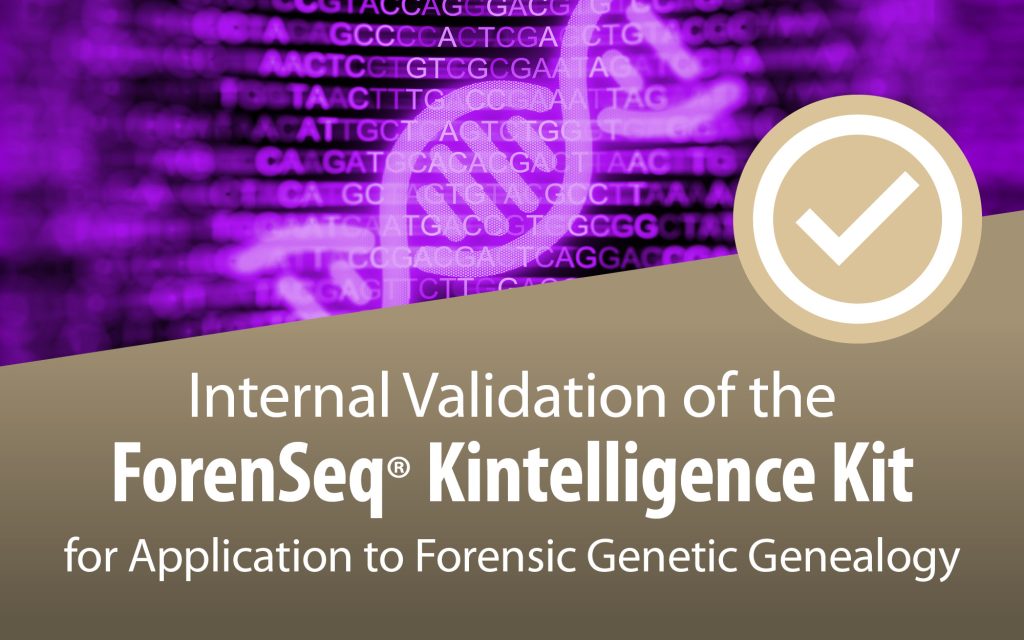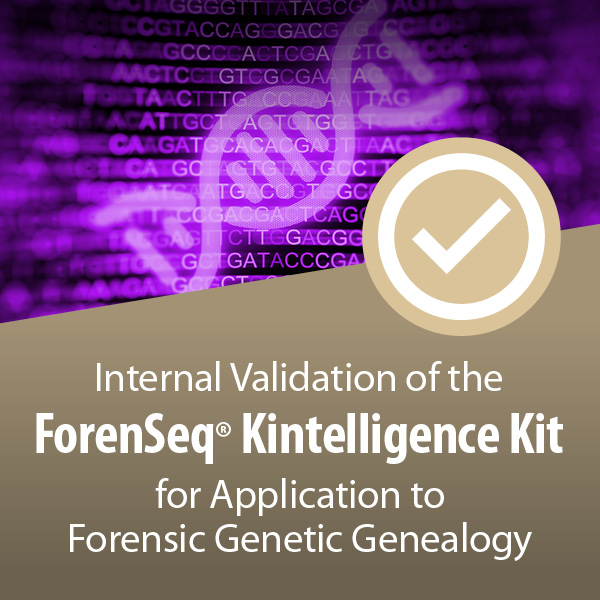
Abstract
Forensic Genetic Genealogy (FGG) requires high-density single nucleotide polymorphism (SNP) profiles to infer distant relationships. The ForenSeq Kintelligence kit is a recently developed method targeting 10,230 SNPs that were selected to be compatible with genetic genealogy databases, whereas avoiding medically relevant SNPs. The targeted polymerase chain reaction method is ideal for low-input and degraded samples, which are particularly challenging for microarray analysis. We made modifications to library preparation and sample pooling to further enhance the performance of low-input samples. To align this FGG method with forensic laboratory standards, we performed an internal validation study in accordance with the Scientific Working Group on DNA Analysis Methods Validation Guidelines for DNA Analysis Methods. The sensitivity and precision and accuracy studies produced accurate and reliable profiles down to 0.05 ng of DNA. The mixture and contamination studies demonstrated that the method could detect the presence of a minor contributor down to 0.02 ng, whereas system-wide contamination was negligible. Nonprobative bone, fired shell casing, and adhesive tape samples performed well with inputs ranging from 0.05 to 1.0 ng of DNA. A bone with a high degradation index and tested at 0.1 ng DNA input resulted in a call rate of 92.9% and a heterozygosity rate of 0.387, which fell within the expected range of 0.316–0.546 from the 1000 Genomes Project data. We demonstrated the importance of both call rate and heterozygosity rate to assess profile performance. Validating FGG methods is critical to ensuring the reliability and utility of SNP profiles that will be uploaded to genetic genealogy databases for the purpose of generating investigative leads.
Read full paper here.
Authors
Michelle A Pecka, Alexander F. Koeppela, Erin M. Gordena, Jessica L. Boucheta, Mary C. Heatona, David A. Russella, Carmen R. Reedya, Christina M. Neala, Stephen D. Turnera
aSignature Science, LLC, Austin, Texas, USA; Center for Advanced Genomics, Charlottesville, Virginia, USA.

